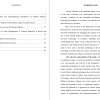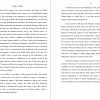Тема: The formation of a citizen: comparative analysis of the experience of the Russian Federation and the People’s Republic of China
Закажите новую по вашим требованиям
Представленный материал является образцом учебного исследования, примером структуры и содержания учебного исследования по заявленной теме. Размещён исключительно в информационных и ознакомительных целях.
Workspay.ru оказывает информационные услуги по сбору, обработке и структурированию материалов в соответствии с требованиями заказчика.
Размещение материала не означает публикацию произведения впервые и не предполагает передачу исключительных авторских прав третьим лицам.
Материал не предназначен для дословной сдачи в образовательные организации и требует самостоятельной переработки с соблюдением законодательства Российской Федерации об авторском праве и принципов академической добросовестности.
Авторские права на исходные материалы принадлежат их законным правообладателям. В случае возникновения вопросов, связанных с размещённым материалом, просим направить обращение через форму обратной связи.
📋 Содержание
Chapter 1 Theoretical and methodological foundations of cultural industries management 7
1.1 The concept and methods of forming the image of an ideal citizen 7
1.2 Cultural industries as a tool of political influence 15
Chapter 2 Practices of State Management of Cultural Industries in Russia and China 21
2.1 Formation of an Ideal Citizen in Russia 21
2.2 Formation of an Ideal Citizen in China 33
Conclusion 42
References 44
📖 Введение
Due to the fact that in the framework of modern society, all socio-cultural phenomena are aimed at mass replication and consumption, there is a need to create universal technologies for managing the «energy of the masses», allowing to make this or that cultural product in demand, and the consumer «obedient». The most universal technology of consumer modeling and masses management is a consolidating idea, which can be reflected both in the collective unconscious and contained in the historical and cultural experience of global civilization. From this point of view, such a universal technology is the formation of the institution of citizenship and ideas about the citizen. Therefore, the study of the way of image formation in Russia and China is an attempt to unify this process.
The relevance and problem of the study is that the formation of a citizen is an important aspect of social and political development of any country. Ensuring civic consciousness and activity of the population is a necessary condition for sustainable development of society and the state. The study of the experience of two major countries - the Russian Federation and the People's Republic of China - will reveal effective methods and approaches to the formation of the citizen, which can be used in other countries. Further, each country has its own peculiarities in the process of forming a citizen. The Russian Federation and the People's Republic of China have different historical, cultural and social contexts, which makes their experiences unique and valuable to study. A comparative analysis will help to identify common trends and differences in approaches to citizen formation, as well as to determine which methods work better in specific conditions. Also, the study is relevant in the context of globalization and internationalization of education. The educational
systems of many countries face the problem of integrating foreign students and preparing them for active citizenship. Studying the experience of the Russian Federation and the People's Republic of China can help to develop effective strategies and methods for citizenship formation among international students.
Degree of development of the research topic.
To study the theoretical aspects of the phenomenon of cultural industries, the study used such directions as modern studies of popular culture, postmodernist philosophy and the Critical Philosophical School. In addition, the works of Russian cultural scientist A.Y. Flier, Novgorod researchers Yakurin. A. V., Lukina S. V. and a number of other researchers of the activities of cultural institutions in Russia.
We considered the concepts of "ideal citizen" and methods of image creation using a historical approach, represented by the works of the Ancient Greek thinker Plato, German philosopher Immanuel Kant. In addition, we studied the works of Russian civil society researchers Kozhevnikov S.N., Abdusattarov Sitor F.K, Arsenyev I.I.
Technologies of citizen formation were studied in the framework of Russian and Chinese legislation on culture, theories of Russian authors Semigin G. Yu. and Yankovskaya L.V., as well as on the basis of the identified formative elements of the image of the citizen in the modern cultural industries of Russia and China, a comparative axiological analysis of the values inherent and nurtured by the government of the compared states was carried out.
The object of the study is the ways of formation of a citizen
The subject is the formation of a citizen in the Russian Federation and the People's Republic of China...
✅ Заключение
Nevertheless, for China, in accordance with government policy, the socially orientated nature of governance is the basis on which the image of citizenship is formed. Thus, in shaping the image of the citizen, emphasis is placed on the moral qualities formulated in Ancient times: respect for elders and filial deference, adherence to regulations in dealing with people, and acting in the public interest. Thus, in this case, there is continuity and respect for Chinese culture, which is reflected in all-Chinese holiday traditions.
For Russia, the idea of citizenship does not go back centuries. The image of a citizen in Russia is first and foremost that of a hero, an active worker who gives himself to protect the Fatherland. This image was formed as a response to the need to defend Russia in World War II. It was then that the basic moral principles and patterns of the citizen were laid down.
In fact, when we talk about the formative elements of the image of a citizen in Russia and China, the basic values are much the same: patriotism, respect for history and culture, obeying laws and paying taxes. But a distinctive feature is the expected patterns of behaviour, which are also influenced by the state. Thus, in China they demonstrate how an ideal citizen should behave, what customs to follow, how to treat others, including how to build relationships within his family. That corresponds with the concept of "the state for the citizen", in which the life of a citizen is thought out, he is not expected to make huge achievements for the benefit of the Chinese people in peacetime. When, for Russia, this is a reality, with the help of various projects aimed at the development of citizenship and civic initiatives, the image of an ideal citizen is laid down as an image of a leader, public figure, representative of the people, which reflects the concept of «a citizen for the state».
Citizen formation is an important aspect of social and political development of any state. Ensuring civic consciousness and activity of the population is a necessary condition for the sustainable development of society and the state. Ensuring the formation of a citizen is an important task for any society. On the example of Russia and China we have learnt that the basic values on which the states rely are similar, however, depending on the historical and cultural context and the presence of experience of the system of control, management over the population in the past, as well as depending on the current objectives of state policy.





